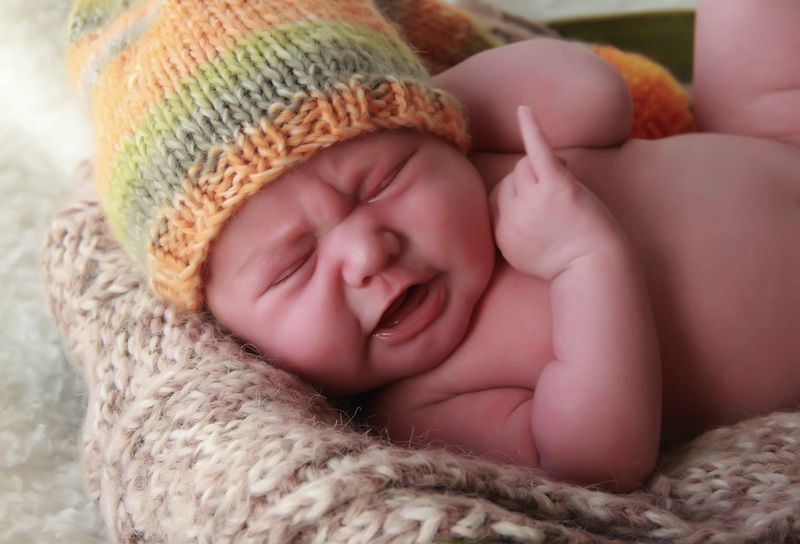Autism Risk May Be Revealed in Babies' Cries

The pitch of babies' cries may provide clues as to whether they are at risk for autism as early as 6 months old, a new study suggests.
The researchers recorded cries from 39 6-month old infants, 21 of whom were at risk for autism because they had an older sibling with the condition. The others were healthy babies with no family history of autism.
A computer-aided analysis showed the cries of babies at heightened risk for autism were higher and more variable in pitch than those of babies not at heightened risk for autism, the researchers said. This result was only true when the cries were caused by pain, such as when a baby fell and bumped his or her head, said study researcher Stephen Sheinkopf, a researcher at researcher at Brown Alpert Medical School's Women & Infants Hospital in Providence, R.I.
But the differences in the autistic babies' cries could probably not be detected by most people using their ears alone, so this is not something parents should listen for, Sheinkopf said. "We don’t want parents to be anxiously listening to their babies' cries," he said.
By the time the children in the study were 3 years old, three of them were diagnosed as having autism. As babies, these three children had cries that were among the highest in pitch, the researchers said. They also had cries that sounded more tense, with more "background noise" picked up by the computer analysis.
The findings suggest babies' cries at 6 months might be used, along with other factors, to determine a baby's risk for autism early on, the researchers said.
If confirmed in future studies, this finding could allow researchers to identify children at risk for autism long before the typical behavior problems become apparent, Sheinkopf said. Previous studies had suggested that 1-year old children with autism make sounds and cries that are not typical, but no one had looked at children as young as six months.
Sign up for the Live Science daily newsletter now
Get the world’s most fascinating discoveries delivered straight to your inbox.
"The earlier we can intervene, the more long-term changes we can make to the benefit of the child," Sheinkopf said.
However, because the study was small, further studies are needed to confirm the results.
The new findings, published in the October issue of the journal Autism Research, agree with those of earlier research suggesting babies' cries are related to brain development. A 2010 study found fussy, 1-month old babies are at increased risk for mental health problems such as attention deficit hyperactivity disorder (ADHD).
Pass it on: Babies with autism may have differences in their cries that can be detected as early as 6 months of age.
Follow Rachael Rettner on Twitter @RachaelRettner, or MyHealthNewsDaily @MyHealth_MHND. We're also on Facebook & Google+.

Rachael is a Live Science contributor, and was a former channel editor and senior writer for Live Science between 2010 and 2022. She has a master's degree in journalism from New York University's Science, Health and Environmental Reporting Program. She also holds a B.S. in molecular biology and an M.S. in biology from the University of California, San Diego. Her work has appeared in Scienceline, The Washington Post and Scientific American.










